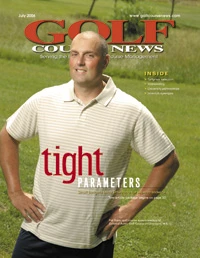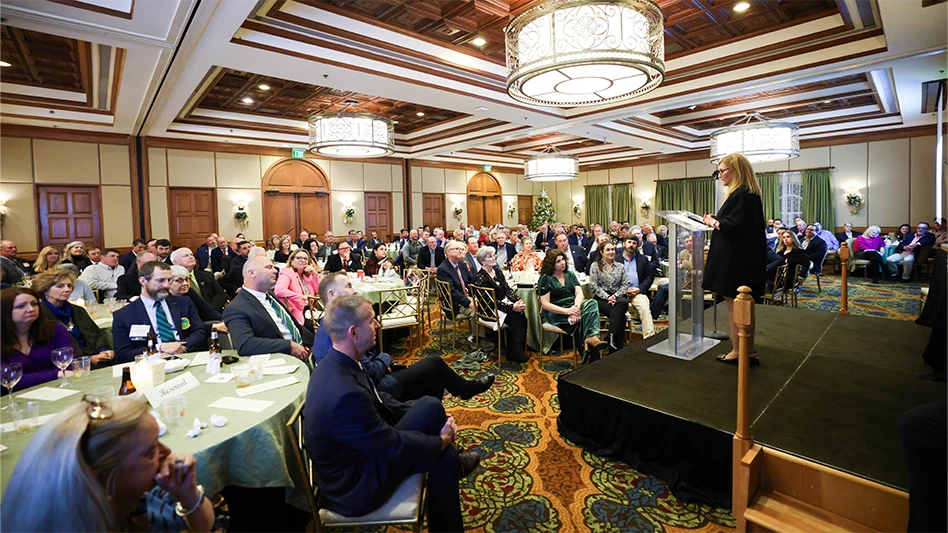LESCO’s foundation was built on its people. Founded in 1962 by Bob Burkhardt and James FitzGibbon, the company and its founders became integral to the success of turf managers big and small.
Now, 44 years later, the national formulator and distributor is striving to return to its roots. With 311 Service Centers and 114 Stores-on-Wheels vehicles, the company’s scope is far-reaching. Yet, its focus throughout the past few years wasn’t always squarely on the customer.
With much-publicized personnel changes at the management level and the elimination of its tenured direct sale reps, LESCO is committed to snatch back its core philosophies.
“Sound customer service … we got away from it in the past five years,” says Jeff Rutherford, president and c.e.o. “The problems were never about the people in the field, but the support of them. In the middle of that, we lost good people.”
Part of the problem stemmed from rampant growth. In 2005, the company expanded its Stores-on-Wheels fleet from 75 to 111. To accommodate this growth, the company had to move people from outside sales or regional management positions to staff the larger fleet. These moves eliminated the tenured golf sales reps, which created some lapses in the field and, in turn, sales losses.
In anticipation of turning the tide, the company now strives to reinstate its direct sales representatives and put it in the best position possible for the 2007 season.
“The decision to disband the sales representative program did not adequately take into consideration our customers’ needs,” Rutherford says. “I have spent considerable time talking to current and former LESCO customers, and many have taken business elsewhere because they lost their relationship with LESCO’s sales representatives.”
Working the direct sales representatives back into the fold will take some time. Twenty to 30 positions were immediately created. Half will be filled internally, and the remainder will be filled from outside the company. Most of the internal moves reflect employees, who had been reassigned in the organization, returning to their former roles.
In addition to the disbandment of its direct sales reps in early 2005, field-level personnel also were disparaged by corporate decisions to shift capital from the Stores-on-Wheels fleet to the manufacturing side of the business. However, by the end of 2005, the company sold its manufacturing assets and is now focused on its distinctive tandem of the Stores-on-Wheels fleet and Service Centers.
“I can’t stress enough that we haven’t lost focus in the field,” Rutherford says. “Our company was split culturally between the field, who were focused on customers, and corporately, who were focused on other things.”
The company is working every day to change that culture.
“Our number one value is field focus – getting back to people who can make decisions,” Rutherford says. “Stores-on-Wheels has been around for 30 years. We have a history of customer service and what it should be.”
In addition to reinstating the direct sales reps, the company is strengthening its sales model even more. Direct sales rep and national account teams will be led by Steve Vincent, channel vice president, golf; and Paul McDonough, channel vice president, lawn and landscape sales. Both will report to Richard Doggett, senior vice president of sales.
While the company’s overall financial projections have been revised because of the sales losses stemming largely from a lack of a direct sales force, the company has added three Stores-on-Wheels vehicles this year and plans for more. In contrast, it will open about 39 Service Centers this year. For the next five years, the company’s strategic plan calls for about a 10- to 15-unit increase per year. Service Centers will be added in markets that include golf courses and lawn care customers.
The company’s model is a seamless, coordinated effort between Service Centers and Stores-on-Wheels vehicles with no barriers between the two. When the new trucks were introduced, some customers questioned whether inventory would be available.
“The new models may not carry all the bells and whistles, but we have Service Centers nearby that can plug any gaps,” Doggett says.
Field reps are given latitude to find product to fulfill customer requests. In some situations, a golf course superintendent might stop by a Service Center on the way home and pick up a product for the next day’s use.
“We want our customers to go where they’re most comfortable and where it benefits them,” Doggett says. “Our reps have turf and product knowledge. If a superintendent needs a product that we don’t have on the truck, our rep will find the product he needs at one of our Service Centers and vice versa.”
In a turf market that’s continually changing, the company is committed to supporting superintendents and suppliers.
“There’s more pressure on superintendents today than every before,” Doggett says. “Superintendents are being asked to do more with smaller budgets.”
Field reps make sure superintendents understand product availability and choices. Whether through field testing, understanding product needs or partnering with vendors to help end-users receive chemistry training so they’re comfortable with the products they’re using, the company wants to be there for its customers.
As competition in the golf market remains stiff, the company differentiates itself through its people, size and products.
“With relationships comes trust,” Rutherford says. “We’re going to be here. We’re not going anywhere. This is our business.”

Explore the July 2006 Issue
Check out more from this issue and find your next story to read.
Latest from Golf Course Industry
- Advanced Turf Solutions and The Aquatrols Company release soil surfactant
- Heritage Golf Group acquires North Carolina courses
- Editor’s notebook: Green Start Academy 2024
- USGA focuses on inclusion, sustainability in 2024
- Greens with Envy 65: Carolina on our mind
- Five Iron Golf expands into Minnesota
- Global sports group 54 invests in Turfgrass
- Hawaii's Mauna Kea Golf Course announces reopening





